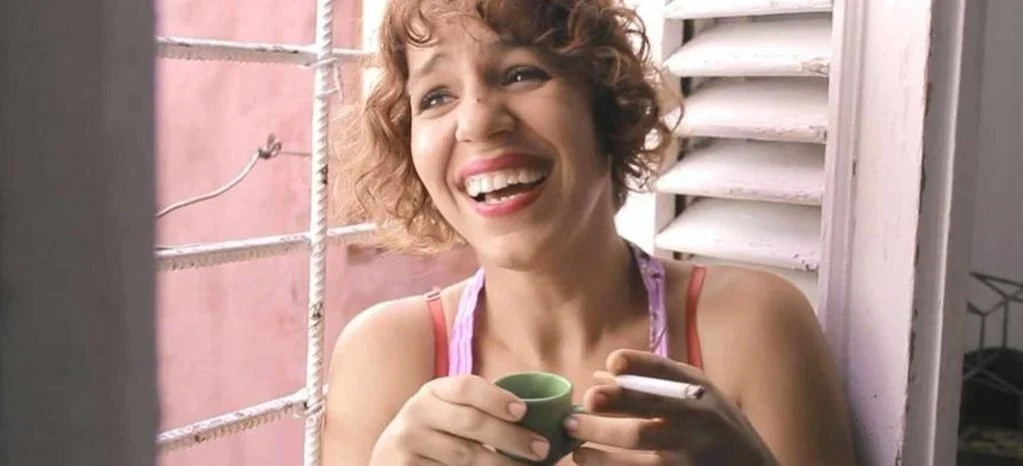The 77th edition of the Locarno Film Festival starts today and runs through August 17 in Switzerland. This year's lineup features several titles from across Latin America in its various competitions and programs, along with the 'Open Doors' special sidebar dedicated for the third and final year to Latin American and Caribbean cinema.
The Brazilian co-production Transamazonia, directed by Swedish-South African filmmaker Pia Marais, will participate in the main international competition. The film follows Rebecca, the daughter of a missionary, who was declared a 'miracle' after surviving a plane crash as a child, deep in the Amazon jungle. Years later, she has become a miracle healer, sustaining their mission through her fame. But when illegal loggers invade the land belonging to the Indigenous people they evangelize, her father maneuvers them into the epicenter of this escalating conflict.
Two Latin American productions will premiere in the Cineasti del Presente competition, dedicated to first and second films: the Argentine film Collective Monologue / Monólogo colectivo by Jessica Sarah Rinland and the Dominican animated film Olivia & the Clouds / Olivia y las nubes by Tomás Pichardo-Espaillat.
Through Argentine-British director Rinland's gaze, Collective Monologue is composed of intimate and fragmented moments unfolding in a community of zoos and animal rescue centers across Argentina. As the histories of these institutions are uncovered, dedicated workers commit both day and night to caring for the remaining enclosed animals, fostering a mutual bond that transcends the imagined boundaries between human and animal.
Olivia & The Clouds follows its namesake protagonist, haunted by a past love that lives under her bed, who trades flowers with it for comforting rain clouds. Barbara, rejected by Mauricio, escapes reality through fantastical stories. Mauricio, full of regrets, is swallowed by the earth. Ramon, smitten by Olivia, witnesses the growth of a strange plant mirroring her. The film surreally explores the enduring power of love's memory.
In the Pardi di Domani competition, which showcases short and medium-length films as world or international premieres and explores possible futures for cinema, Bronx-native Latinx director Joel Alfonso Vargas will screen his latest film Que te vaya bonito, Rico. The film follows a teen and his underage girlfriend selling mixed drinks, known as 'Nutcrackers,' on a beach in the Bronx to get by. Also in Pardi di Domani, within its Concorso Corti d'Autore section, two Latin American short films will compete: Colombia's A Son and A Father / 1 padre & 1 hijo by Andrés Ramírez Pulido and Mexico's Les bouches by Valentin Merz.
Piazza Grande, the festival's centerpiece event, which showcases a bold mix of international premieres, will present three Latin American titles: the Peruvian feature Reinas by Klaudia Reynicke, Mexico 86 by Guatemalan director César Díaz, and the Argentine film Gaucho Gaucho by American filmmakers Michael Dweck and Gregory Kershaw.
Reynicke returns to Locarno with her third film, Reinas, which won the Grand Prix of the Generation Kplus International Jury at this year's Berlin International Film Festival. Set in Lima during the political chaos of 1992, the film follows Lucia and Aurora, who are about to leave their country forever with their mother—and need their absent father to sign their exit papers.
Following his Cannes award-winning debut film Our Mothers, César Díaz's sophomore effort, Mexico 86, will have its world premiere at Locarno and is set in the director's native Guatemala. The narrative feature follows Maria, an activist fighting against the corrupt military dictatorship, who is forced to flee to Mexico due to death threats, leaving behind her son. Ten years later, when he comes to live with her, she is forced to choose between her duties as a mother and continuing her revolutionary activism.
Following a world premiere at Sundance, Gaucho Gaucho is a documentary that celebrates Argentine gauchos, a community of cowboys and cowgirls living beyond the boundaries of the modern world.
The third and final year of Locarno’s Open Doors program, dedicated to Latin American and Caribbean cinema, will feature diverse and groundbreaking films, including eight feature films and five shorts from eleven Central and South American countries: Guatemala, Chile, Peru, Bolivia, Dominican Republic, Ecuador, Venezuela, Cuba, Costa Rica, Paraguay, and Argentina.
The Open Doors selection is comprised by the feature films Queens and Other Colors / De reinas y otros colores by Juan Herrera Zuluaga from Guatemala; the Peruvian-Chilean co-production Through Rocks and Clouds / Raíz by Franco García Becerra; the Dominican films Sirena by Olivia De Camps and Bionico’s Bachata / La bachata de Biónico; The Beach of Enchaquirados / Las playa de los enchaquirados by Iván Mora Manzano from Ecuador; Lost Chapters / Los capítulos perdidos by Lorena Alvarado from Venezuela; The Skin of the Water / La piel del agua by Patricia Velásquez from Costa Rica; and Eami by Paraguayan director Paz Encina.
The selected Latin American shorts are What Humans See As Blood Jaguars See as Chica / Lo que los humanos ven como sangre los jaguares ven como chicha by Luciana Decker Orozco from Bolivia, Back to Las Maravillas / Las maravillas by Rob Mendoza from Ecuador, Aphorisms of The Lake / Aforismos del lago by Humberto González Bustillo from Venezuela, I Love Papuchi by Rosa María Rodríguez Pupo from Cuba, and Tierra de Leche by Milton Guillén and Fiona Guy HAll from Nicaragua.
Semaine de la Critique, an independent section showcasing the international premiere of documentary features, will screen the international premiere of the Mexican documentary hybrid Ways to Traverse a Territory / Formas de atravesar un territorio by Gabriela Domínguez Ruvalcaba. In her encounter with a community of Indigenous Tsotsil women, who tend their sheep while honoring their land’s memory, the documentary reveals a longing to acknowledge different ways of inhabiting the same territory.
Histoire(s) du Cinéma, the festival sidebar dedicated to film history, pays tribute to new restorations, films about films, documentary essays, and audiovisual remixes in multiple subcategories. As part of this year's Lifetime Achievement Award, which will honor five-time Academy Award-winning Mexican filmmaker Alfonso Cuarón, his film Children of Men will have a special screening.
Histoire(s) du Cinéma also features a new restoration of the Brazilian film Onda Nova, the 1983 film by Francisco C. Martins and José Antonio Garcia, about the resurgence of women's football in Brazil after years of prohibition. This erotic and anarchist dramatic comedy brings together stories about the female players of a newly formed football team, who are forced to deal with the prejudices of a conservative society that reviles them, as well as grapple with their own personal problems.








